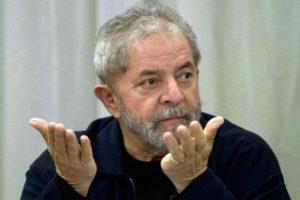A “Soft Coup” in Brazil’s Election Will Have Global Consequences
- Opinión

Prisons are reminiscent of Tolstoy’s famous observation about unhappy families: Each “is unhappy in its own way,” though there are some common features — for prisons, the grim and stifling recognition that someone else has total authority over your life.
My wife Valeria and I have just visited a prison to see arguably the most prominent political prisoner of today, a person of unusual significance in contemporary global politics.
By the standards of U.S. prisons I’ve seen, the Federal Prison in Curitiba, Brazil, is not formidable or oppressive — though that is a rather low bar. It is nothing like the few I’ve visited abroad — not remotely like Israel’s Khiyam torture chamber in southern Lebanon, later bombed to dust to efface the crime, and a very long way from the unspeakable horrors of Pinochet’s Villa Grimaldi, where the few who survived the exquisitely designed series of tortures were tossed into a tower to rot — one of the means to ensure that the first neoliberal experiment, under the supervision of leading Chicago economists, could proceed without disruptive voices.
Nonetheless, it is a prison.
The prisoner we visited, Luiz Inácio Lula da Silva – “Lula,” as he is universally known — has been sentenced to virtual life imprisonment, in solitary confinement, with no access to press or journals and with limited visits one day a week.
The day after our visit, one judge, citing press freedoms, granted the request of the nation’s largest newspaper, Folha of São Paulo, to interview Lula, but another judge quickly intervened and reversed that decision, notwithstanding the fact that the country’s most violent criminals — its militia leaders and drug traffickers — are routinely interviewed in prison.
To Brazil’s power structure, imprisoning Lula is not enough: They want to ensure that the population, as it prepares to vote, cannot hear from him at all, and are apparently willing to use any means to accomplish that goal.
The judge who reversed the permission wasn’t breaking any new ground. One predecessor was the prosecutor at the 1926 sentencing of Antonio Gramsci by Mussolini’s Fascist government, who declared, “We must stop his brain from working for 20 years.”
“History doesn’t repeat itself but it often rhymes,” as Mark Twain observed.
October 2 2018
https://theintercept.com/2018/10/02/lula-brazil-election-noam-chomsky/
Del mismo autor
- The path to a livable future, or will rich corporations trash the planet? 28/10/2021
- A sociedade global pós-pandemia 05/02/2021
- Three major threats the world must address in 2021 08/01/2021
- As três maiores ameaças à vida na Terra que devemos abordar em 2021 08/01/2021
- Tres grandes amenazas a la vida en la Tierra que debemos afrontar en 2021 08/01/2021
- Internationalisme ou extinction 21/09/2020
- Internacionalismo o Extinción 21/09/2020
- Internacionalismo ou Extinção 21/09/2020
- Internationalism or Extinction 21/09/2020
- Chomsky: A escassez de respiradores expõe a crueldade do capitalismo neoliberal 06/04/2020








